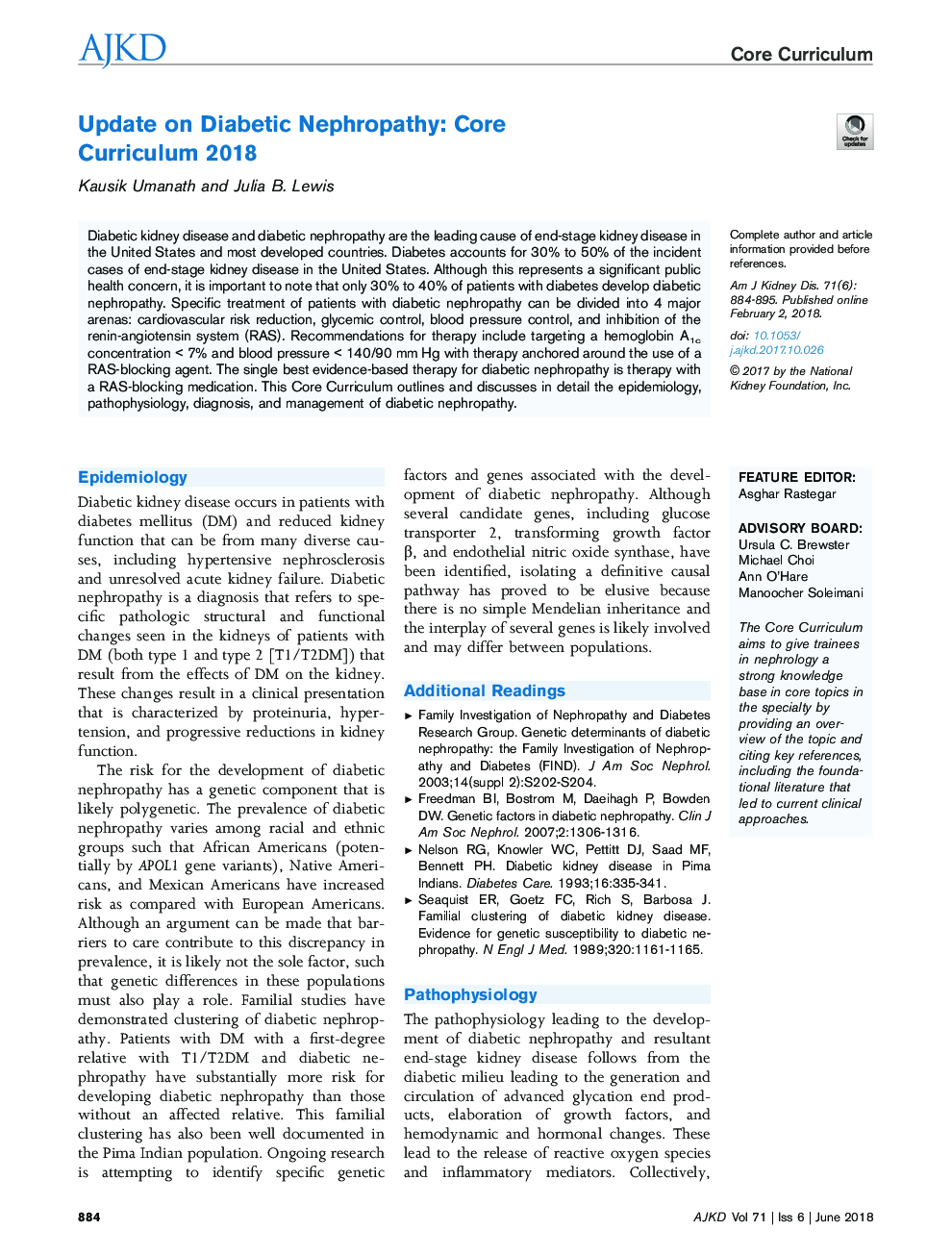| Article ID | Journal | Published Year | Pages | File Type |
|---|---|---|---|---|
| 8769758 | American Journal of Kidney Diseases | 2018 | 12 Pages |
Abstract
Diabetic kidney disease and diabetic nephropathy are the leading cause of end-stage kidney disease in the United States and most developed countries. Diabetes accounts for 30% to 50% of the incident cases of end-stage kidney disease in the United States. Although this represents a significant public health concern, it is important to note that only 30% to 40% of patients with diabetes develop diabetic nephropathy. Specific treatment of patients with diabetic nephropathy can be divided into 4 major arenas: cardiovascular risk reduction, glycemic control, blood pressure control, and inhibition of the renin-angiotensin system (RAS). Recommendations for therapy include targeting a hemoglobin A1c concentration < 7% and blood pressure < 140/90 mm Hg with therapy anchored around the use of a RAS-blocking agent. The single best evidence-based therapy for diabetic nephropathy is therapy with a RAS-blocking medication. This Core Curriculum outlines and discusses in detail the epidemiology, pathophysiology, diagnosis, and management of diabetic nephropathy.
Keywords
Related Topics
Health Sciences
Medicine and Dentistry
Nephrology
Authors
Kausik Umanath, Julia B. Lewis,
